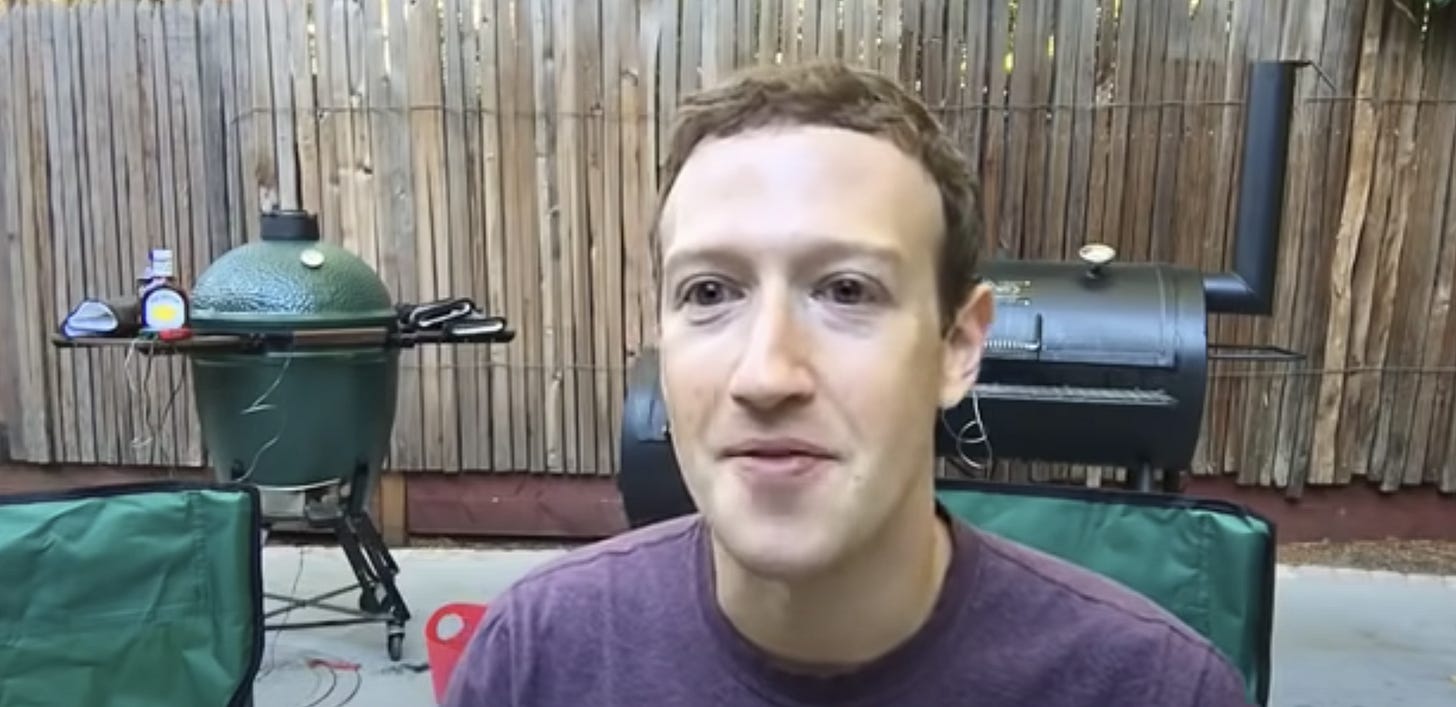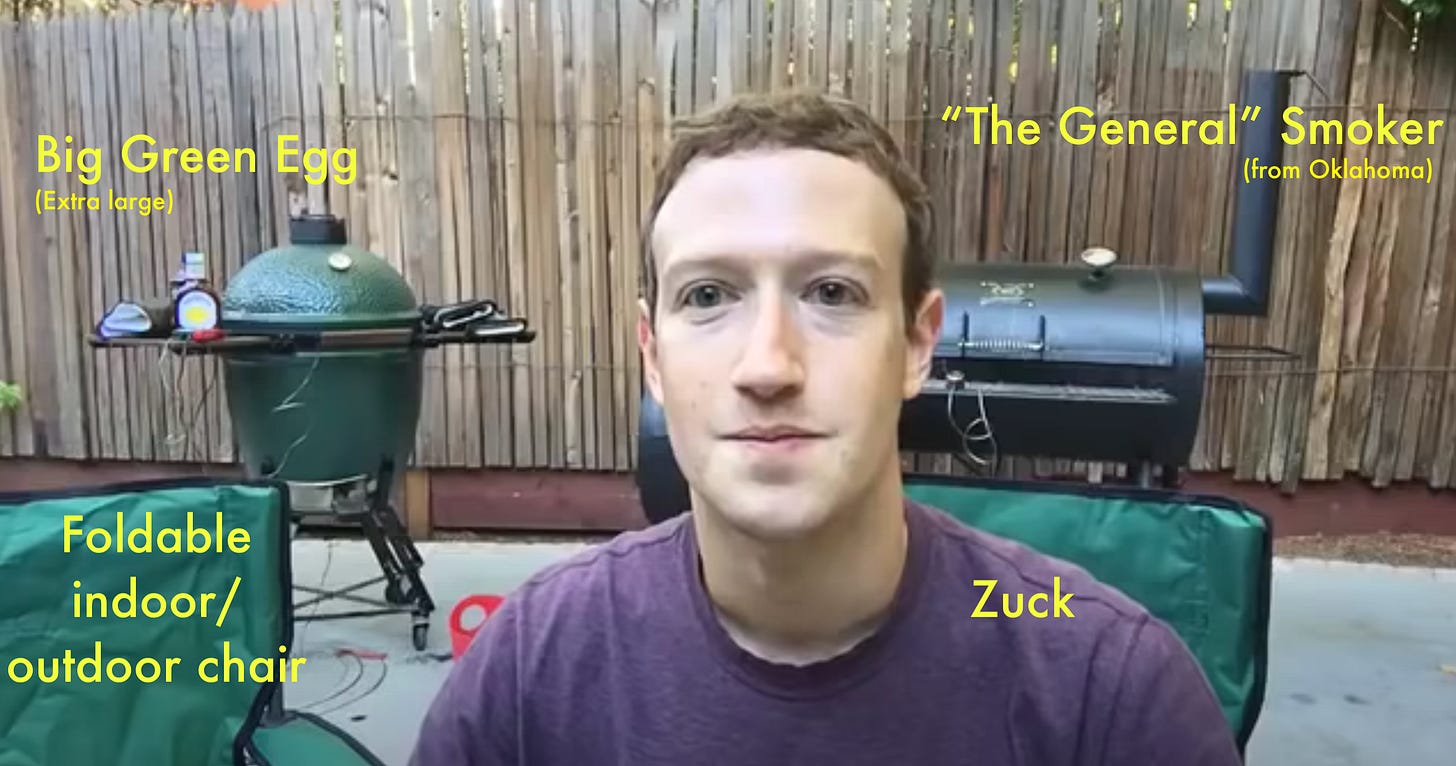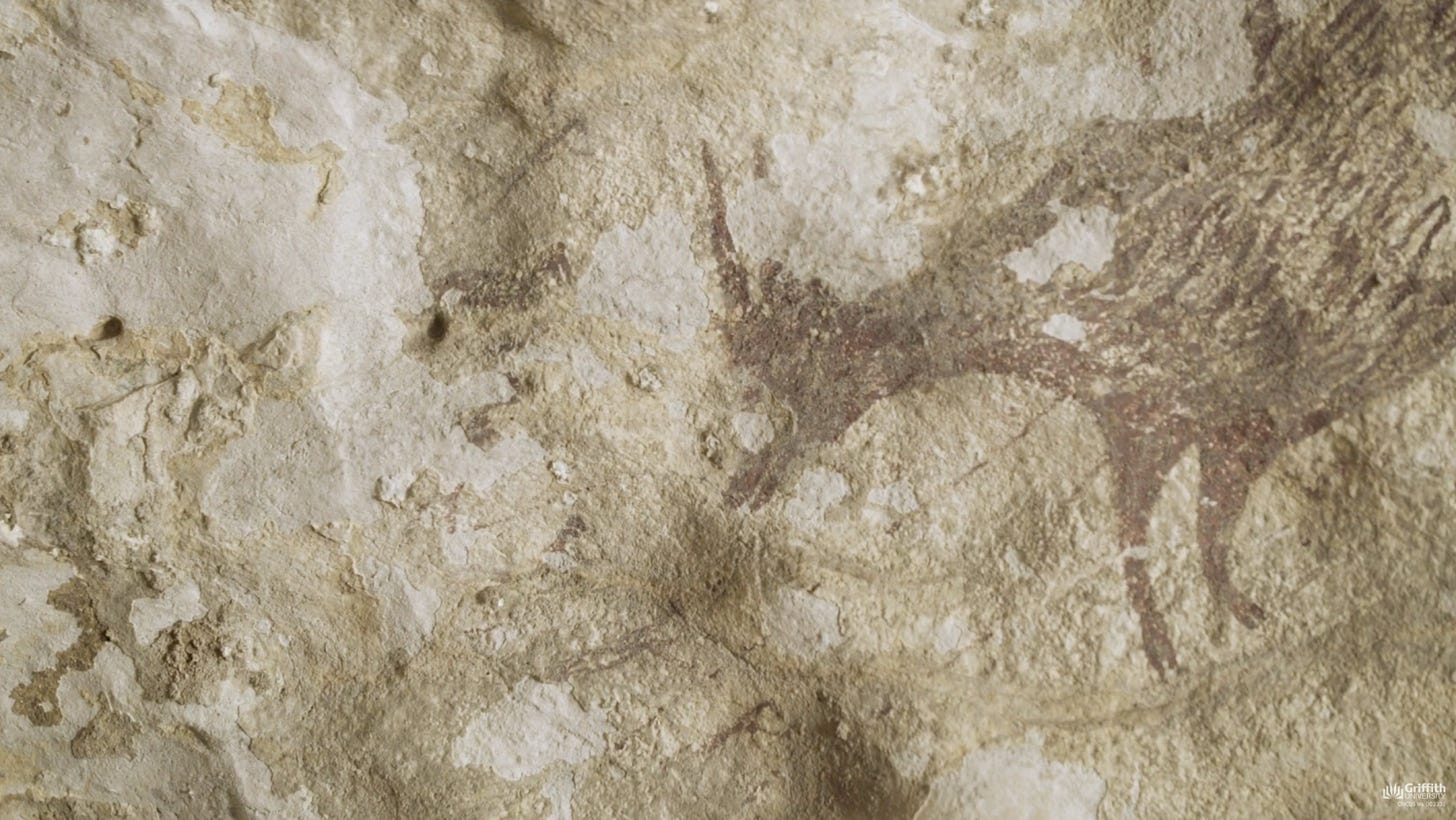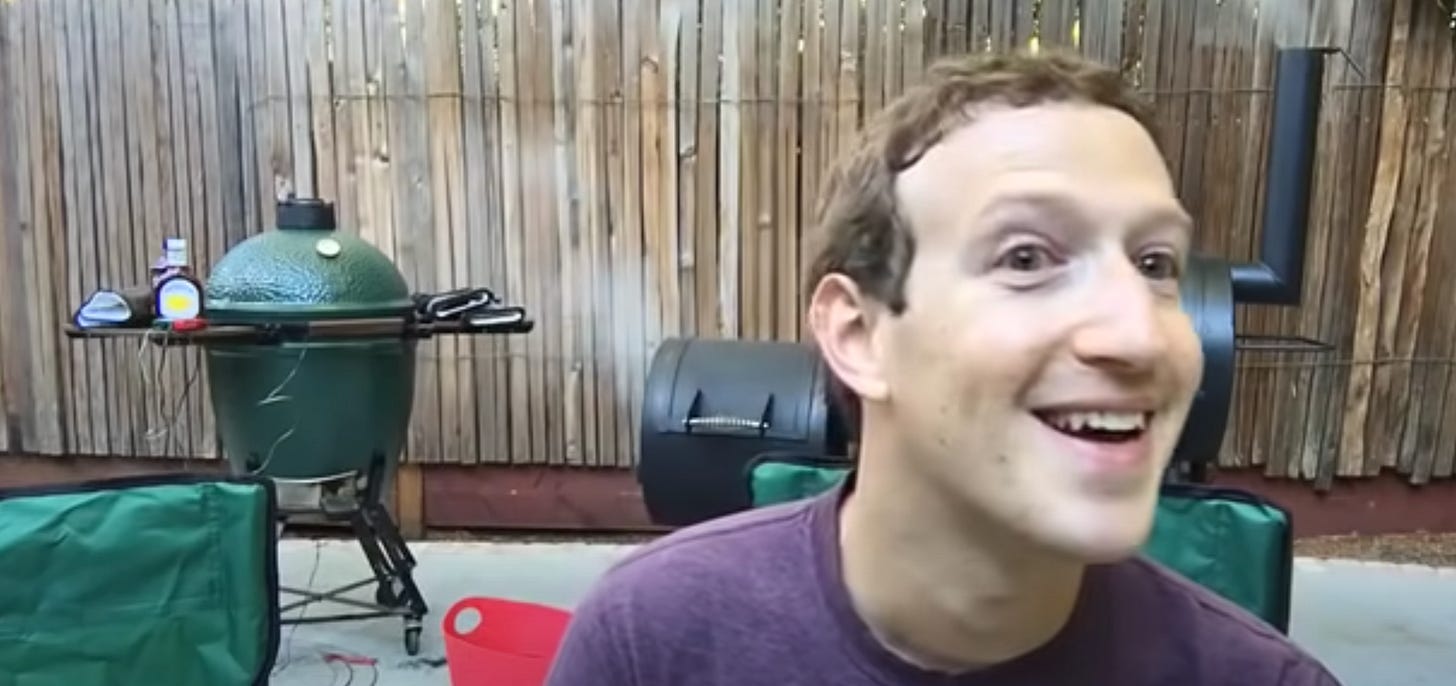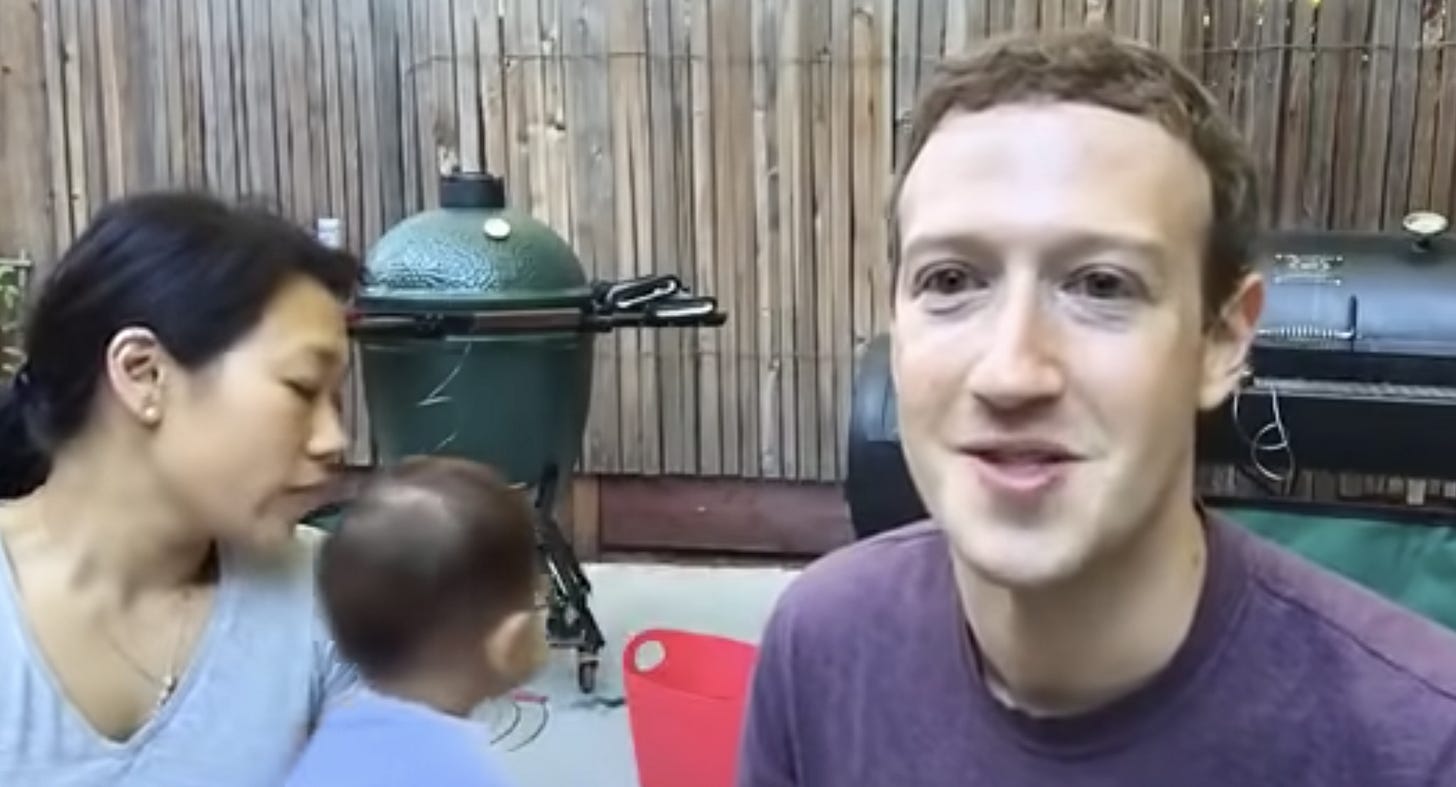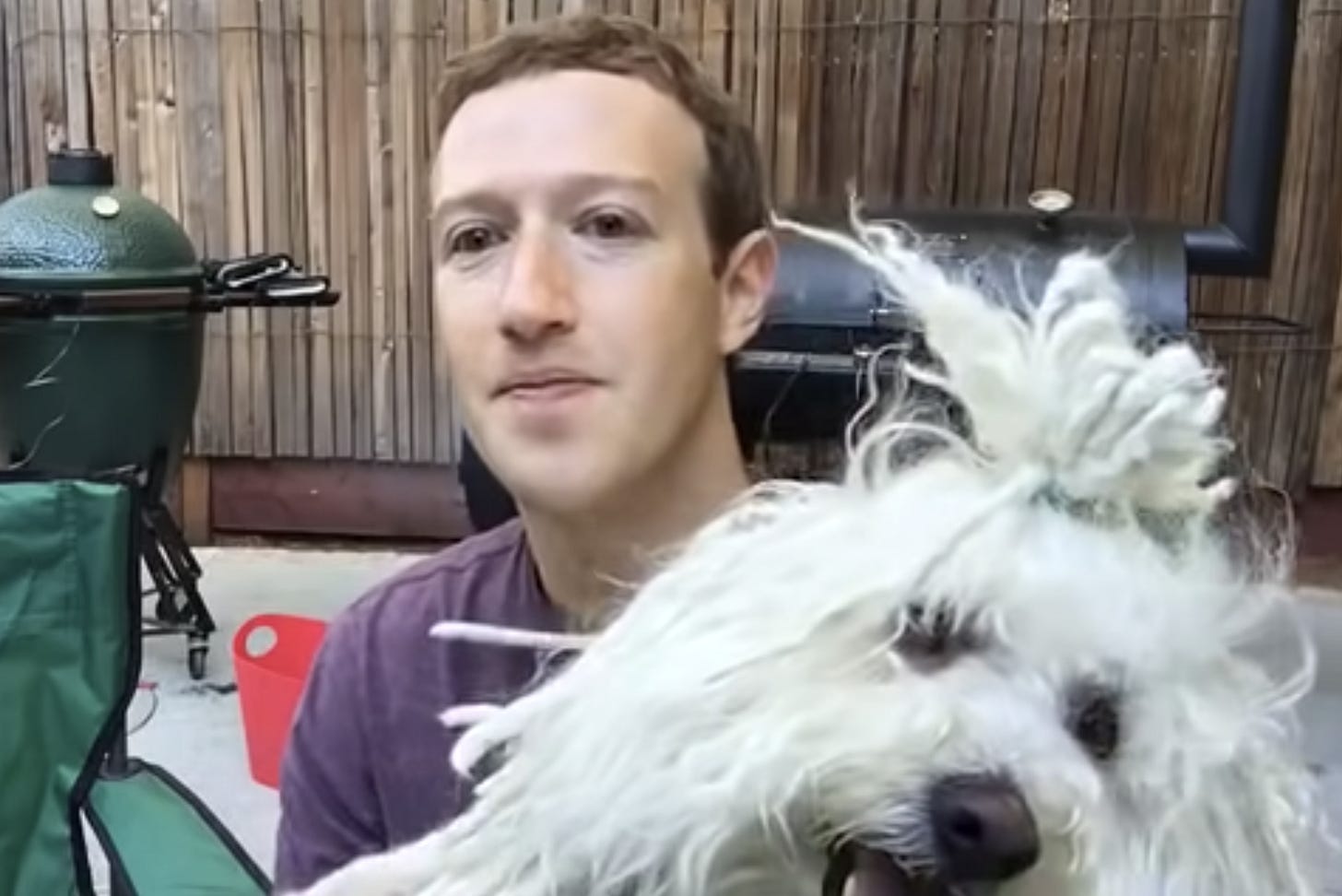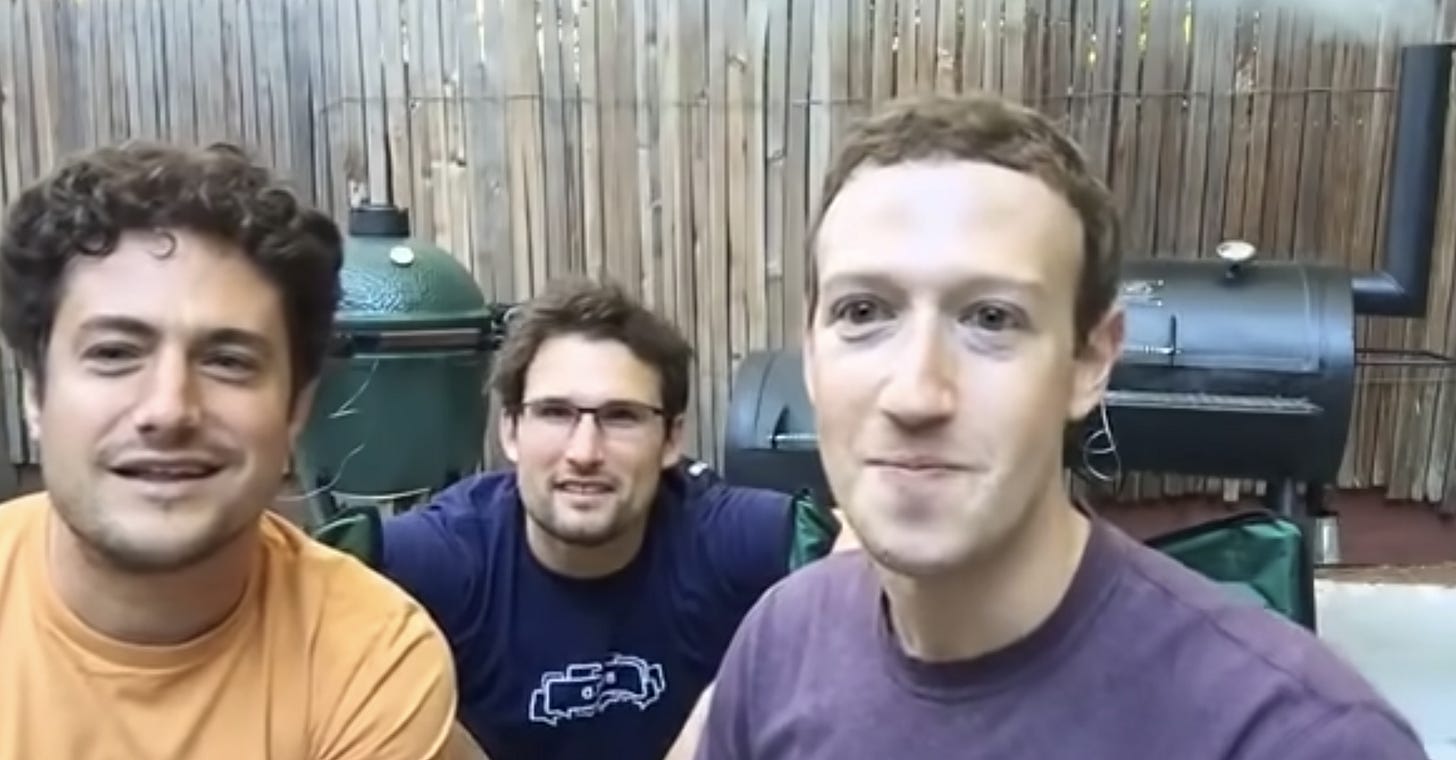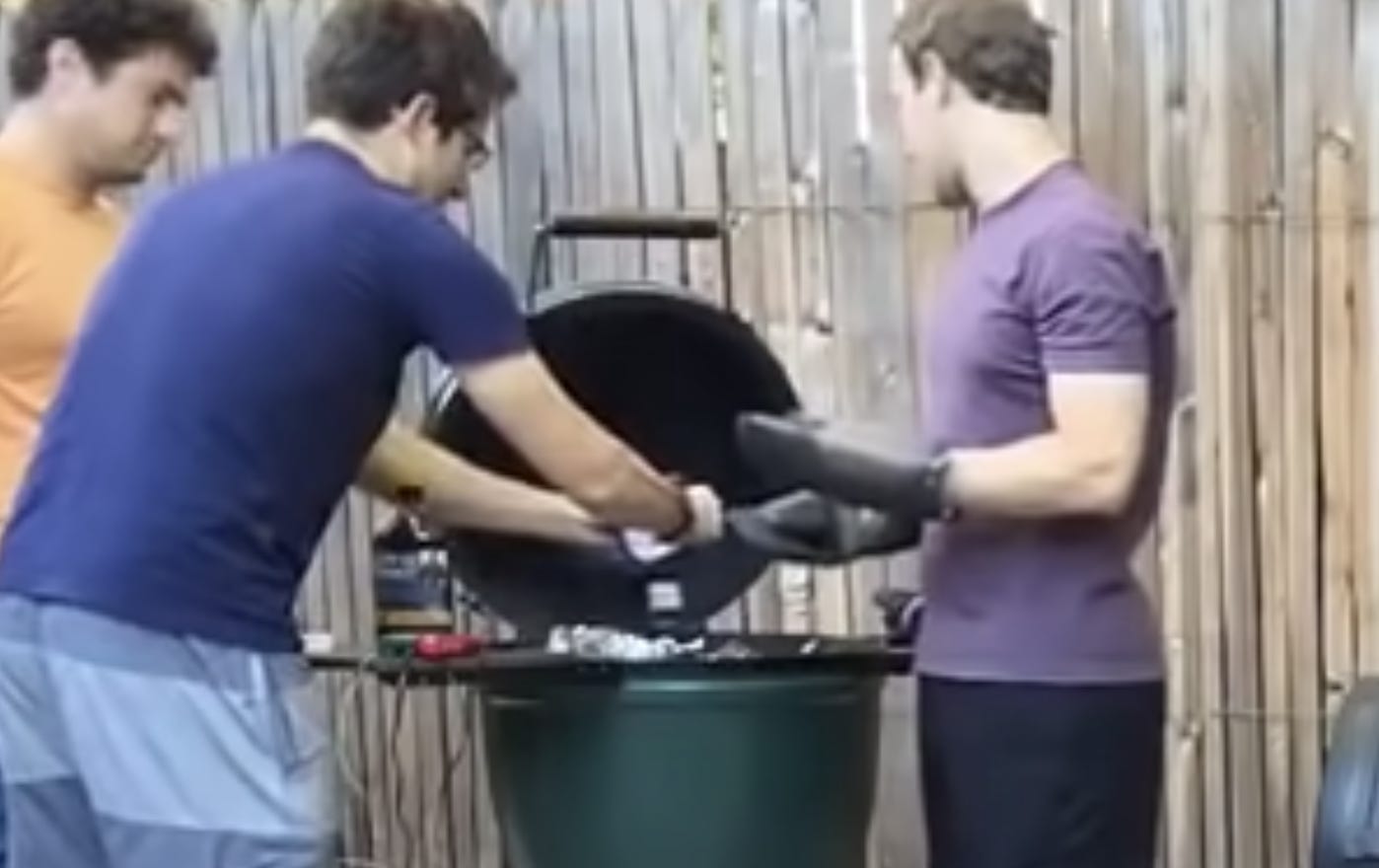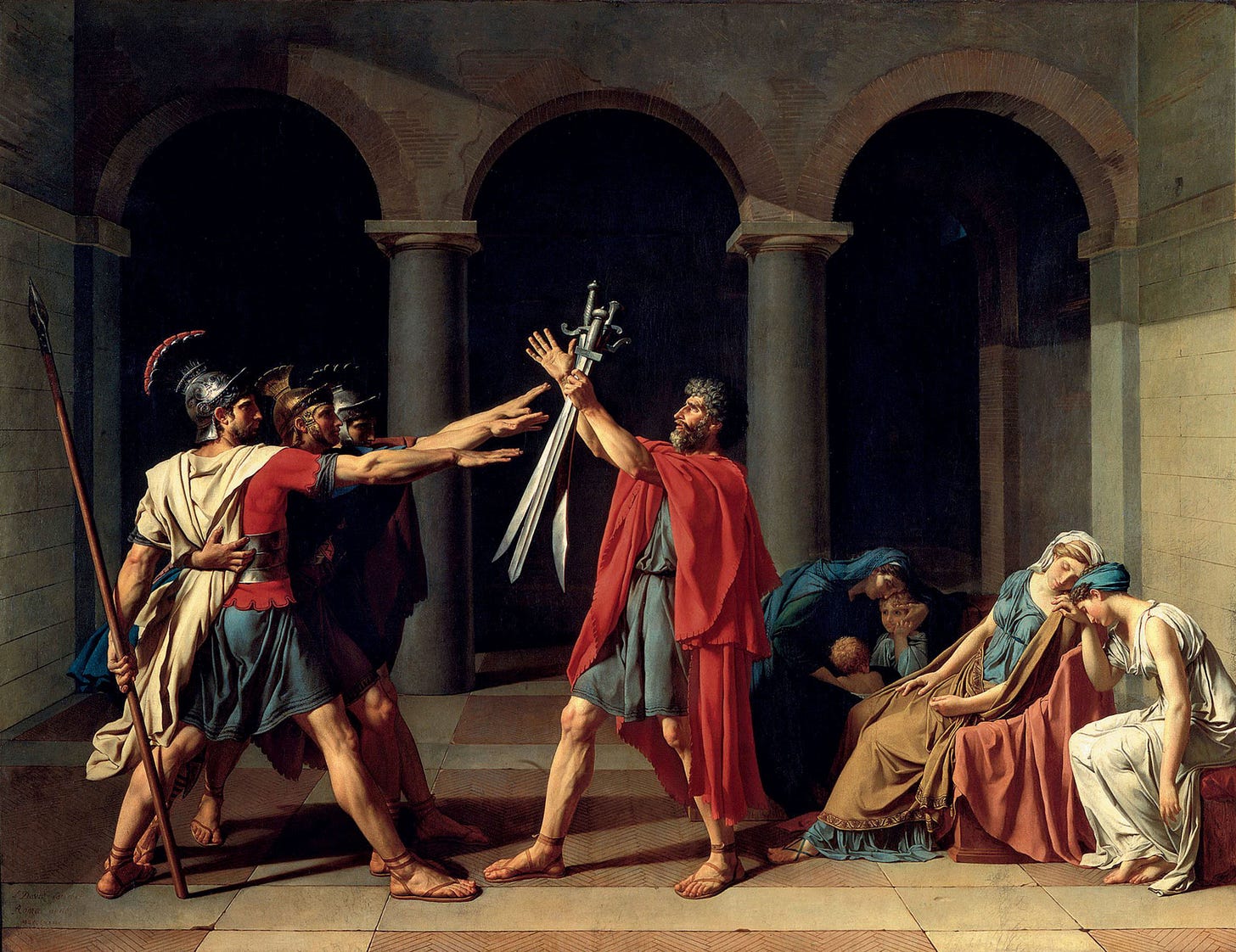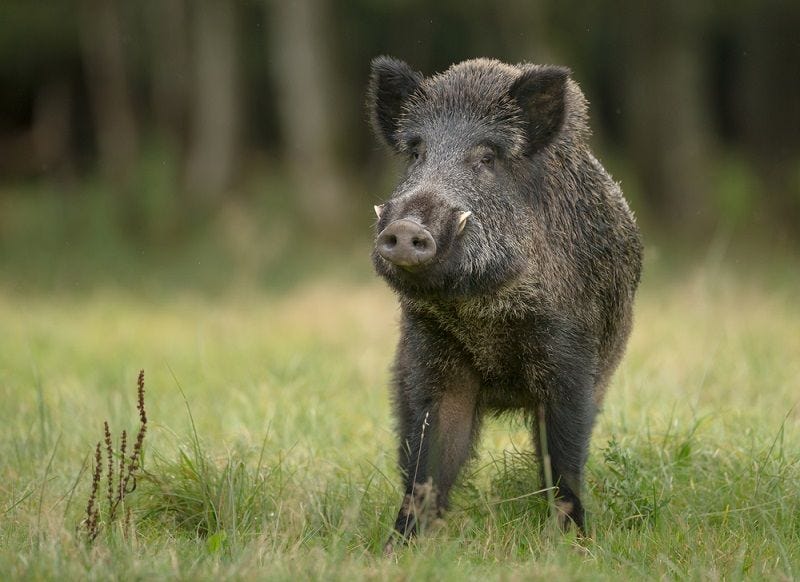More Than Brisket and Ribs: An Analysis of "Zuck Smokes Meats" (2016, dir. Mark Zuckerberg)
A Close Watching of Zuckerberg's Masterpiece
from Zuck Smokes Meats (2016)
The quest for a new Cinéma vérité
Mark Zuckerberg, in his debut film, re-invigorated cinéma vérite with Zuck Smokes Meats (Zuck fume de la viande), one of the most important short films of the last 25 years.
In the film, Zuckerberg, as writer-director, portrays himself; albeit a somewhat exaggerated, more human version. I’ll call this character Zuck, as opposed to Zuckerberg, the director. Zuckerberg, via the Zuck doppelgänger, forces us to consider far more than meats, and how to smoke them: by the end of the film we are questioning the very value of life itself. In addition to these consequential questions, Zuckerberg interlaces into his meta-narrative an entire intellectual, cultural and political history of smoking meats (as Zuck says: “one of the most fun things you can do”), and in doing so borrows a page from a long line of artists going back to Herman Melville. In some sense, Zuckerberg may even have exceeded his fore-bearers in this endeavor.
Notoriously, when the film debuted, it was immediately controversial: several people threatened to kill themselves so as to not have to finish it. Indeed, the personal existential questions posed during the film can at times be too much. There are moments when the audience is made to experience a certain kind of ennui that some people describe as “boredom”. And that is part of its depth.
The film is not just about Zuck, meat, and existence. We also meet a small set of characters, who may or may not be trapped in some sort of Beckettian backyard. In fact, some more radical theorists (the so-called Zuckian dreamists) think these “people” may be nothing more than fictions of Zuck’s own imagination. Others, like myself, believe they are in fact real. Some of the narrative may hinge on this; I’ll entertain both theories through this study when relevant.
Set and setting
Zuck welcomes the audience into his backyard, immediately breaking the fourth wall. Yes: this is indeed the rebirth of cinéma vérite, and of the most direct kind. We are enthralled by the immediacy and intimacy. Zuck is speaking both to his “viewers”, presumably some sort of Internet audience that is watching him live — as well, as of course, to us, the cinematic audience.
Let’s examine the setting. We are thrust into this scene with no reference to the external world, which makes us focus entirely on the objects in front of us. A quick visual markup of the scene is in order (I should note there is also another, more important object here that I ignore for now —we will examine it in greater depth later):
“Hey everyone. We are live from my backyard, where I am smoking a brisket and some ribs, and getting ready for the Presidential Debate tonight.”
We can take a fair guess at the exact date and time the film takes place: October 9, 2016, about 5PM Pacific. There is a presidential debate starting “in about 30 minutes”, but it’s reasonable to assume the Zuck character is understating that time duration. The location, we are told much later in the film, is Palo Alto, California (again, in the more radical schools of thought, this place may not even exist at all outside of Zuck’s imagination.)
Zuck introduces us to two critical objects, and Zuckerberg the director does a superb job in letting neither dominate the mise en scène. First, we meet The Big Green Egg, a popular kamado-style ceramic charcoal cooker. Then we meet “The General” Smoker, a large charcoal smoker from Horizon BBQ Smokers in Oklahoma, the most trusted name in traditional smokers. Zuck sometimes refers to this smoker as “The Big Guy” in the film.
Since we are joining in media res, Zuck has already placed ribs in the Egg, and a brisket in The General smoker.
Sweet Baby Ray’s
A little after the 7 minute mark, we encounter a critical moment in the film. It’s worth watching closely, with some previous context. Watch especially as Zuck’s facial expression immediately changes as a critical phrase is uttered:
Here we see that an astute viewer, Justin Anderson (location unknown), has noticed the most important symbolic object in the film: (“good spot!”): an 18-ounce bottle of Sweet Baby Ray’s Original BBQ Sauce.
The bottle of Sweet Baby Ray’s is not merely a bottle. It is an illustrative object, and it primarily represents, and contains, the raw, Dionysian aspect of Zuck: the aspect that has been bottled up and sealed, its vital tanginess and sweetness and flavor hidden away (a similar theme, we shall see, involves Zuck’s dog, Beast).
We might say that an instinctual part of Zuck is transmuted through the BBQ sauce — and, importantly, can now only be consumed. It is consumed primarily by Zuck, himself, but also by those he deems worthy. They are so anointed.
There is more to this. Consider later in the film, when Zuck is asked by a viewer: “What kind of Sweet Baby Ray’s do you like?”
Zuck appears unaware that there are multiple kinds of Sweet Baby Ray’s. He responds, apparently shocked, with this:
I don’t know! I actually was not previously aware that there were multiple kinds of Sweet Baby Ray’s… I…uh, I guess the original has got to be the best.
This, I believe, is deliberate ignorance on the part of the Zuck character. If the Zuck character knew there were multiple kinds of Sweet Baby Ray’s, i.e., multiple expressions of his essence, then the original, organic power of the bottle would be weakened. Indeed, the entire edifice of the Sweet Baby Ray’s would come crumbling down — the bottle, one might say, would break.
Watch the entire film carefully for each utterance of the phrase “Sweet Baby Ray’s.” For Zuck, this is no mere food product — he speaks of it with reverence, its very articulation is a kind of blessing.
This idea is not entirely new — I believe that mystics from the Golden Age in Persia may have known it as well. Consider this quote from Rumi (emphasis mine):
True beauty is a ray that springs from the sacred depths of the soul.
Indeed.
Half of the joy
“The thing that really makes it good — I think half of the joy is that things taste better when you make them yourself. And they taste doubly better when you hunted the animal itself. Whether you’re fishing for the salmon, or going hunting for a boar, that’s a big part of it. You feel more connected to what you’re doing.” — Zuck
After more greetings and some details on the nuances of smoking, Zuckerberg takes things in a new, more personal direction. Here he focuses Zuck on one of Zuckerberg’s own big obsessions (at that time) — the killing of animals by his own hand. Zuck reaches some of his most impassioned moments regarding this point. We might think he could spend the entire film waxing poetic on the joy of the hunt, which would no doubt make for a fine film itself.
But ponder this fixation. Humans have hunted, of course, since the dawn of the species. Hunting even preceded recognizable society, i.e., preceded the earliest social networks — is hunting a way for Zuck to transcend even that? Perhaps, to finally take full mastery of everything in human history?
43,900-year-old cave painting found at the Leang Bulu’ Sipong 4 site in South Sulawesi, Indonesia. (Griffith University)
The audience has little time to ponder this, however, after a viewer asks Zuck to give a “shoutout to Haiti,” which he does, dutifully noting Facebook’s response to the recent humanitarian disaster caused by Hurricane Matthew upon that island nation.
Meet the family
Zuck prepares to introduce his “special guests”
At the 12:30 mark, we meet two new characters: Maxima Chan Zuckerberg (portrayed with vigor and humanity by Maxima herself, in one of the strongest infant performances in recent memory), as well as Priscilla Chan, a doctor, philanthropist and also Zuck’s wife (portrayed by Chan herself, as well).
At first Priscilla and Maxima are off-screen — indeed, Priscilla seems to not want to participate in this film at all. However, Zuckerberg now makes his very first camera movement of the film, as he has Zuck pan the ostensible “camera” a few degrees over, permitting the full family to appear in scene. Up to this point, Zuckerberg has fully (and solely) embraced the cinematic lineage of using very long single shots for dramatic intensity, a style used by such obvious Zuckerberg influences as Robert Altman, Jean-Luc Godard, and most importantly, Yasujirō Ozu. (Zuckerberg may actually owe the most to Ozu, who not only embraced very long shots, but also preferred to keep the camera motionless).
The first camera movement of the film
After less than a minute on camera, Priscilla walks away, carrying Maxima. As they leave, a sense of loneliness comes over Zuck and he talks to the screen:
“Who doesn’t like ribs,” Zuck says, quietly. “Everyone likes ribs. Everyone likes ribs.”
Beast and what he means
from Zuck Smokes Meats (2016), at 16:04
At 16 minutes into the film (almost exactly the midpoint), Zuck introduces Beast (portrayed by the actual Beast, in his debut performance), a Hungarian sheepdog — more specifically a Puli, related to the more famous Komondor breed.
“Beast is about five and half years old,” says Zuck. “He is very fun. He is a little bit crazy.” (emphasis mine).
We now meet Beast/meat Beast — there is this implied subtle punning throughout the film:
Beast, of course, is almost certainly another metaphor (this one even more blatant) for Zuck’s primitive, animal instincts: the raw id which Zuck must sublimate into his life’s work. Beast might even be a literal alter-ego for Zuck.
Zuckerberg, as director/writer, may be using the name “Beast” too obviously. The audience could likely figure out the true meaning of Beast without that name. But as auteur let us forgive Zuckerberg for it — after all, the name does emphasize the visceral power of this repressed animal instinct that lurks close to the surface of Zuck. Let’s see more of Beast (photographer unknown):
But here’s the thing with Beast. Notice how quickly he comes on screen — and then how quickly he disappears. It is as if, for just a moment, Zuck entertains the idea of letting the beast out, as it were, but his repression takes over. We may wonder: where does Beast go after this? On a “walk”?
An aside: the use of practical effects
Let’s take a brief look at a representative moment from the film’s first act. Here, Zuck says hello to two viewers, and then reflects on the meaning of this entire film. I’ve slowed this part down so we can more clearly recognize some of cinematographic innovation. Note the smoke from the large smoker, dancing in the background. (It’s also notable that Zuckerberg consistently prefers practical effects in this film: here he opts for real smoke instead of CGI).
Let’s take a look:
Meat/meet friends
After the introduction of Beast, Zuck spends several minutes literally talking about smoking meats — he reminds his audience that brisket and ribs are on tonight’s menu, talks about his affection for the Big Green Egg, and, significantly, attempts to connect with the viewers (he asks: “How many of you guys are eating brisket and ribs tonight?”).
This fascinating detour ends quickly, however, as two new characters enter. We might reasonably ask: where were they before? (But that’s irrelevant to the kind of immediate narrative that Zuckerberg is pushing here). They are “Mean” Joe Green and Sam Lessin (both appearing as themselves):
The arrival of “Mean” Joe Green and Sam Lessin
The film’s climatic moment now approaches.
Zuck and the two friends immediately move to “The General” and the Big Green Egg. Without question, the Sweet Baby Ray’s is being applied.
There is some small talk about a triathlon while this happens; but that might as well be background noise. What matters now is the ritual: the application of the Sweet Baby Ray’s. The three of them partake in this ritual, and Zuckerberg visually reminds us of Jacques-Louis David’s neoclassical painting, The Oath of the Horatii (1784):
Zuck now mentions, as an aside, that the Presidential Debate will be airing soon. Of the debate, Zuck says: “This is important”. But we quickly move to the most important part of the film.
“What’s your favorite kind of sauce Mark?”
The Sam Lessin character is indeed shocked that the Sweet Baby Ray’s has been applied tonight. Sam has never seen it: Zuck always goes for the Rufus Teague. And of course this makes sense — the Sweet Baby’s Ray is a mystical, symbolic, intimate thing: a matter of sacred, private spirituality and physic depth.
It’s not the sort of thing that would normally be revealed in public, even to friends. Indeed, we immediately hear, off-screen from Priscilla (as if from a god-like figure, observing Zuck), that she prefers the Sweet Baby Ray’s over the other options. Indeed, it is plausible to assume that she, as Zuck’s partner, is perhaps the only person to have ever shared the Sweet Baby Ray’s with him. The fact that Zuck is now sharing the Sweet Bay Ray’s with the entire world is an incredibly dramatic moment — and is in part why this film is ultimately so important.
Within just a moment of the Sweet Baby Ray’s being applied, the group brings out beers. With the application of the Sweet Baby Ray’s, the Dionysian element has been completely loosed upon Zuck’s world, and perhaps the larger world. There is no going back.
Real meat among fake news
While Zuck is smoking these meats, the audience may wonder about what is happening on the Facebook platform as America approaches the 2016 election, less than a month away?
The meats, however, are now nearly done, and the film ends abruptly, with an allusion to a possible sequel:
“I guess I’ll catch you on our next installment of Grill Talk at some point in the future…I’ll see you guys soon. Enjoy the Presidential debate.”
There was, however, never a sequel; and Zuckerberg left us with just the singular, original film to forever ponder.


